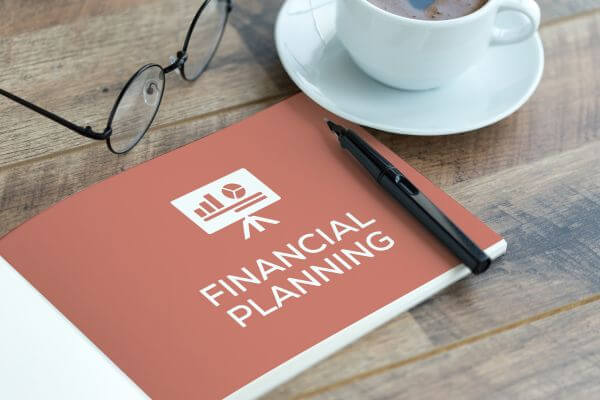I Am Broke : Why it Happens and Escape Being Broke
Inside: Escape the cycle of being broke with insightful tactics. Learn to invest, save smartly, spot financial traps, and build secure money habits today.
You are desperate right now. You want to know why I am broke.
I get it. This is a situation I have been in before and just recently when I lost my main source of income.
The feelings of you can’t afford anything may send you down a steep spiral of depression.
So, how do we escape?
Here are the tips I used before and plan to use again.

Top Reasons for Why I am Broke
#1 – The Mindset Traps That Keep You Broke
A mindset that cultivates a sense of scarcity rather than abundance can be a massive roadblock to financial prosperity. When you’re shackled by thoughts like “I am always broke,” you unwittingly set the stage for a self-fulfilling prophecy.
The mental narrative that convinces you wealth is unattainable can keep you trapped in a loop of missed opportunities and poor financial decisions.
You may inadvertently sabotage your potential to earn more, save, or invest wisely by clinging to a defeatist paradigm.
- Fixing a broken mindset is about shifting from a state of helplessness to one of deliberate, empowering action.
- It starts with self-awareness and is further built through intentional positive affirmations and financial education.
Overcome By: Remember, the mind is powerful—it can be your greatest ally or your most formidable adversary. Change your money mindset.
#2 – Living Beyond Your Means: A Fast Track to Empty Pockets
Living beyond your means is akin to constantly filling a sieve with water, hoping it will someday retain more than it loses—a surefire way to financial drought. It’s a lifestyle where your outflow far exceeds your inflow, and every paycheck evaporates into the ether of consumerism.
With the advent of credit cards and buy-now-pay-later schemes, the temptation to spend money we don’t have has never been greater.
The façade of affluence conceals the grim reality of financial instability.
Acknowledging this trap is step one. Living within one’s means doesn’t imply sacrificing joy or reverting to asceticism; it’s about striking a harmonious balance between the lifestyle you desire and the one you can sensibly afford.
Overcome By: Making choices aligned with your financial reality, finding contentment in simplicity, and prioritizing financial health over transient pleasures.
#3 – Chronic Debt: Borrowing from Tomorrow for Today

Chronic debt is a pervasive issue, ensnaring individuals in a vicious cycle of borrowing today and worrying about repayment tomorrow. This pattern often stems from an urgency to fulfill immediate desires or needs without adequate financial resources.
Alarmingly, the trend of increasing consumer debt signals a culture obsessed with instant gratification as consumer debt is $16.84 trillion in Q2 2023, according to Experian. 1
Being in debt should not be normal.
The onus of breaking free from chronic debt lies in reevaluating your relationship with money. It means slowing down the urge to splurge, meticulously planning for future financial obligations, and carving a path towards debt repayment.
Overcome By: Find the discipline to not only stop accumulating debt but also to aggressively tackle existing debts through methods like debt snowball or debt avalanche strategies.
#4 – You Haven’t Learned to Plan and Budget for a Brighter Tomorrow
The lack of a strategic financial plan and a detailed budget is tantamount to navigating unknown terrain without a map. Without these critical tools, your finances are left to chance rather than choice, leaving you vulnerable to the whims of circumstance.
Budgeting is perhaps the most fundamental step toward taking ownership of your financial future. It gives you a clear snapshot of where your money is going, which is essential for making informed spending decisions.
However, many avoid the budgeting process, perceiving it as restrictive or complex. The truth is that budgeting liberates you from the anxiety that comes with uncertainty. It empowers you to align your spending with your financial goals and to find a balance between today’s necessities and tomorrow’s aspirations.
Overcome By: Choose a budgeting method whether it be the zero-based budget, the 50/30/20 rule, or the envelope system, the key is to find a method that resonates with your lifestyle and stick to it.
#5 – No Emergency Fund to Weather Financial Storms
An emergency fund is an essential bulwark against the financial tempests life invariably hurls your way. Without it, a single unforeseen event—a job loss, a medical emergency, or an urgent car repair—can capsize an already precarious financial ship. The lack of an emergency cushion extends an open invitation to debt and financial strain.
The data tells a stark tale:
- A statement from the Consumer Financial Protection Bureau highlights that nearly a quarter of consumers (24%) don’t have an emergency savings account. 2
- Additionally, 39% have less than a month’s worth of income saved for emergencies, setting the stage for potential financial disaster. 2
This precarious situation has become more pronounced with the increasing cost of living and high inflation rates witnessed in 2021-2023.
Overcome By: Structured, automatic savings transfers to facilitate the gradual growth of your emergency fund without it feeling like a financial blow. The goal is to build a reservoir robust enough to cover several months of living expenses, providing a comfortable buffer that can help you bounce back from setbacks without the need to borrow money at high-interest rates or liquidate precious assets at inopportune times.
#6 – Lack of Understanding of The Power of Investing

Understanding the power of investing is key to grasping the potential of a seed. A seed, given the right conditions, can grow into a flourishing tree. Similarly, investing allows your finances to grow beyond the confines of stagnant savings.
Yet, many people fail to harness this power due to a lack of understanding or fear of the unknown. This was me for many years until I decided to learn to trade stocks.
A common misconception surrounding investing is that it’s solely the playground for the rich or financially savvy. This myth steers many away from multiplying their wealth via investments, leaving them to rely solely on their primary source of income. Moreover, a lack of understanding often leads to panic during market volatility, resulting in ill-timed decisions to buy high and sell low—contrary to sound investment strategies.
Overcome By: Invest money consistently into a low-cost mutual fund or ETF that tracks the overall S&P. Then, continue your investing education on how to invest in stocks.
#7 – Wasteful Spending Habits
Wasteful spending habits are the quiet thieves of financial security. They nibble away at your earnings, leaving you wondering where your money has gone at the end of each month. This pattern often goes unnoticed, as it’s usually composed of small, seemingly insignificant purchases that accumulate over time.
The danger of wasteful spending is its subtlety.
- It’s the daily coffee on the way to work, the meal out because cooking feels like too much of an effort, or the impulse buys during the sale season.
- Individually, these do not seem like considerable expenses, but together, they can consume a substantial portion of your budget.
To curtail this financial leak begins with recognizing and acknowledging these habits. Tracking every penny spent can be an eye-opening experience, illustrating just how quickly the ‘little things’ can add up. With this awareness, one can then consciously decide where to cut back.
Overcome By: Adopting a minimalist approach, where value and purpose become the benchmarks for every expense, can help combat wasteful spending. Questions like, “Do I really need this?” or “Will this purchase add value to my life?” can serve as useful filters. Take up a no spend challenge to see your mindless consumption.
#8 – Fail to Recognize the Patterns That Lead to a Near-Empty Wallet
Failing to recognize the patterns that deplete your wallet is akin to ignoring the signs of a leaking roof until it caves in—it’s a disaster in the making. Often, it isn’t one significant financial blunder, but rather a series of small, recurring missteps that lead to the near-empty wallet syndrome.
- For instance, routinely underestimating monthly expenses can lead to a perpetual state of surprise when the bills pile up.
- Similarly, neglecting to keep tabs on bank account balances may result in overdraft fees that, over time, take a sizable bite out of your funds.
- Disregarding the accumulative effects of late payment charges or routinely paying only the minimum on credit card balances can exacerbate financial distress.
Overcome By: To reverse this trend, one must become a detective in their own financial mystery. Start by scrutinizing bank statements and tracking expenses. Look for patterns, like repeated late-night online shopping sprees or habitual dining out, which contribute to the thinning of your wallet. Use budgeting apps or spreadsheets to flag these patterns visually, making it easier to identify and amend them.
#9 – How Fear and Denial Contribute to Ongoing Money Issues

Fear comes in several forms: fear of failure, fear of taking risks, and even fear of facing the truth about one’s financial situation. It can immobilize individuals, preventing them from making necessary financial changes or taking action that could otherwise mitigate or reverse money woes.
For instance, the fear of losing money might dissuade one from investing in potentially lucrative opportunities, leaving them stuck in the low-yield safety of a savings account.
Further, there’s the psychological phenomenon of denial—a defense mechanism that numbs the pain of reality. When faced with mounting debt or budgetary failure, denial kicks in, allowing individuals to live as if the problem doesn’t exist. Unfortunately, ignoring overdue notices or dodging calls from creditors doesn’t make debts disappear.
Denial only deepens the financial hole, often leading to larger, more complex problems.
Overcome By: To confront these challenges, it’s crucial to adopt a stance of brutal honesty with oneself. This means acknowledging fears and confronting financial shortcomings head-on. Professional help, such as financial counselors or advisors, can provide support and guidance to navigate these tricky emotional waters.
#10 – No Clear Financial Goals and Plans
The absence of clear financial goals and plans is like embarking on a voyage without a destination. It not only leads to aimless wandering but also ensures that you miss out on the focus and motivation that well-defined objectives provide.
When you lack clarity on what you’re saving for or what you wish to achieve, there is little impetus to resist the temptations of immediate gratification or to weather the short-term sacrifices that long-term gains often require.
Setting clear and measurable financial goals lays the groundwork for creating effective plans to reach them.
Overcome By: To break this cycle, begin by reflecting on what you value most and where you would like to be financially in the future. Whether it’s achieving debt freedom, owning a home, funding education, or planning for retirement, having specific goals in mind will define the purpose of your financial activities. Craft a plan that outlines the steps needed to accomplish them.
#11 – Laziness is your Game
When you approach your finances with a laissez-faire attitude, it’s akin to ignoring the health of a garden; without regular attention and effort, it’s bound to wither. Financial laziness can manifest in various ways, from failing to review bank statements and ignoring budgeting to neglecting opportunities to cut costs or boost income.
Each act of omission is a step closer to the financial doldrums.
Procrastination or avoidance might seem less painful at the moment, but they ultimately compound the problem. Contrary to what some might think, simple acts of financial diligence, such as cash management or regularly doing household chores, do not require Herculean effort.
Moreover, they set a foundation for sound financial habits that thwart needless spending.
Overcome By: Schedule time for financial management much like an important meeting.
#12 – Keeping up with Others is Breaking Your Bank

The urge to keep up with others—often termed the ‘Keeping up with the Joneses’ or ‘Keeping up with the Kardashians’ phenomenon—is a profound pressure that exerts an invisible, yet powerful, force on financial habits. This social comparison can lead to an insidious form of competition, one that disregards personal financial realities in favor of an illusory social standing.
It’s an impulse driven by comparison, where the benchmark of success is set not by personal satisfaction, but by the possessions and lifestyles of others.
The decision to upgrade to a luxury car, splurge on designer clothes, or redo a perfectly functional kitchen stems not from need, but from a desire to project an image that matches or surpasses those in your social sphere.
Financial guru Dave Ramsey encapsulates this philosophy with his common saying, “Live like no one else will now, so in the future, you can live like no one else can.” This means making money moves that are right for you, not those dictated by social pressures, which can sometimes involve humbler living now for a wealthier future.
Overcome By: Breaking free from the shackles of this social competition requires introspection and a bold reaffirmation of personal values. Adjusting focus towards personal financial goals and aspirations, rather than mirroring others’ spending decisions, is key.
#13 – Need Help Differentiating Needs from Wants
The blurring line between needs and wants is a common financial pitfall that can lead individuals deeper into the morass of money woes.
- Needs are essentials, the non-negotiable items necessary for survival—food, shelter, healthcare, and basic utilities.
- Wants, on the other hand, include anything that is not vital for basic survival but enhances comfort and enjoyment of life.
The difficulty in distinguishing between the two often stems from habituation. What starts as a luxury, like eating out at restaurants, getting a high-end smartphone, or subscribing to multiple streaming services, can quickly become perceived as essential. This is particularly difficult in a consumer-driven society, where advertising and social media constantly inflate our perception of what we ‘need’ to lead a fulfilling life.
The result? A budget that’s stretched thin on non-essentials, leaving little room for savings or investment.
Overcome By: Regularly reassess expenses and ask the hard questions about whether a purchase is genuinely essential or merely a desire dressed up as a need.
#14 – You Don’t Make Enough Money to Cover Your Expenses
When your income doesn’t cover expenses, the strain can be relentless. This financial imbalance is often the stark root of the “I am broke” refrain. In such cases, every dollar becomes precious, and the financial breathing room feels nonexistent.
The reason is straightforward: if what comes in is less than what goes out, deficits and debt are the inevitable outcomes.
Addressing this challenge requires a two-pronged approach—increasing income and/or reducing expenses. For many, reducing expenses is the immediate reflex, and while it’s an essential strategy, there’s only so much you can save, but no limit to how much you can earn.
Overcome By: Focus on making more money. This could mean asking for a raise, seeking better-paying job opportunities, pursuing a side hustle, making money online, or acquiring new skills that offer higher income potential.
Long-Term Solutions to Build a Secure Financial Future

Building a secure financial future is an aspirational goal for many, but achieving it requires a strategic approach characterized by foresight, discipline, and an understanding of personal finance.
Becoming financially independent doesn’t happen by magic chance; it’s the result of deliberate actions taken with consistency over time.
Here are the foundational blocks for constructing a sturdy financial edifice:
- Invest in Financial Literacy: Knowledge is power, and this is especially true in the realm of finance. Educate yourself about budgeting, investing, insurance, taxes, and retirement planning. Reliable resources include books, online courses, podcasts, and workshops.
- Set Clear Financial Goals: Define what financial success looks like for you, whether it’s being debt-free, owning a home, or achieving financial independence. Detailed goals provide direction and motivation for your financial plan.
- Create a Robust Budget: A flexible budget isn’t a one-time exercise but a living document that should evolve with your financial situation. It should reflect your income, fixed and variable expenses, and financial goals.
- Establish an Emergency Fund: This is the bedrock of financial security. Aim to save three to six months’ worth of living expenses to protect yourself from unforeseen circumstances without falling into debt.
- Pay Off Debt: High-interest debt is a major impediment to financial growth. Utilize strategies like the debt snowball or avalanche methods to tackle debts efficiently. Once you’re debt-free, avoid accumulating new debt.
- Diversify Income Streams: Relying on a single source of income is a risk. Look for opportunities to create additional streams of income, such as side businesses, freelance work, or passive income from investments.
- Invest Wisely: Make your money work for you through smart investments. Consider diversified portfolios, retirement accounts, and tax-efficient investment strategies to grow your wealth over time.
- Plan for Retirement: The future is closer than you think. Contribute regularly to retirement accounts like 401(k)s or IRAs. Take advantage of employer match programs if available, as they’re essentially free money.
- Protect Yourself with Insurance: Ensure you have adequate insurance coverage for health, life, property, and potential liabilities. This helps to guard against catastrophic financial losses.
Breaking the Cycle of Being Broke
Just like becoming broke is often a gradual process—a few uncalculated loans, hasty investments, and numerous credit card swipes. Suddenly, financial stability seems like a far-off dream.
The same goes for breaking the cycle of being broke. It is about moving from living paycheck to paycheck with no savings, drowning in debt, and making questionable spending decisions to become financially stable.
Even though our society may see being broke as normal, it is possible to embrace financial prudence to defy such norms. It’s time to delve into the reasons behind the perpetuation of brokeness and unveil practical steps toward lasting financial freedom.
What do I do if I’m broke?

Finding yourself in a financial predicament where the end of your money arrives before your next paycheck is a stress-inducing scenario.
When faced with the stark reality of being broke, here’s a step-by-step guide to help you navigate through and set the stage for a more stable financial future:
- Assess Your Situation: Take stock of all your available assets and resources. This includes checking account balances, any savings, and items you could potentially sell for quick cash. Understanding what you have can help you gauge your immediate next steps.
- Prioritize Your Expenses: Sort your expenses by urgency and necessity. Essentials like rent, utilities, and groceries come first. Non-essentials or discretionary spending should be paused or significantly reduced until your financial situation improves.
- Reduce Costs Immediately: Eliminate any non-essential expenses. Cancel or suspend subscriptions, memberships, or services that are not vital. Consider cheaper alternatives for necessary expenses, and utilize community resources, such as food pantries, if needed.
- Negotiate with Creditors: If you’re struggling to pay your bills, proactively reach out to creditors to discuss payment options. Many are willing to work with you on a revised payment plan to avoid defaults.
- Seek Additional Income Sources: Consider taking on a side job, selling unused items, freelancing, or offering your skills for short-term gigs. Even small amounts of additional income can make a significant difference when you’re broke.
- Consider Assistance Programs: Look into local, state, and federal assistance programs. You may be eligible for temporary aid to help with food, housing, or utility bills.
- Borrow with Caution: If borrowing is unavoidable, be cautious and choose the most cost-effective options such as loans from family or friends, a personal loan with a low-interest rate, or a hardship withdrawal from your retirement account (as a last resort).
Remember, being broke can happen to anyone, so there’s no shame in it.
The key is to take swift, decisive action to mitigate the immediate crisis while also planning longer-term strategies to prevent recurrence. By addressing the issue head-on and adjusting your financial habits, you can initiate the journey from being broke to becoming financially buoyant.
FAQ: Navigating Away from Being Broke
Feeling Broke without Money – Time to Make A Change

Feeling broke is a stressful and demoralizing experience, but it’s also a clarion call for change. It signals that your financial health needs attention and that your money management strategies may require a significant overhaul.
However, the situation is not without hope; with determination and the right approach, it’s possible to transform your financial landscape.
The journey away from the precipice of being broke begins with honesty, introspection, and a willingness to adapt. It’s about confronting uncomfortable truths, devising a clear plan, and taking decisive action. From crafting and adhering to a precise budget, cutting unnecessary expenses, to seeking additional income streams—all these steps are essential in the path to financial stability.
Remember, feeling broke isn’t a permanent state. Mindset is everything.
It’s a challenge to be met, an opportunity for growth, and a chance to steer the course of your financial ship towards calmer and more abundant waters. Your future self will thank you for the changes you implement today, so take that first step now.
>>>It’s time to make a change—because you deserve the peace of mind that comes with financial security.
Source
- Experian. “Experian Study: U.S. Consumer Debt Reaches $16.84 Trillion in Q2 2023.” https://www.experian.com/blogs/ask-experian/research/consumer-debt-study/. Accessed January 25, 2024.
- Consumer Financial Protection Bureau. “Emergency Savings and Financial Security.” https://files.consumerfinance.gov/f/documents/cfpb_mem_emergency-savings-financial-security_report_2022-3.pdf. Accessed January 25, 2024.
Did the post resonate with you?
More importantly, did I answer the questions you have about this topic? Let me know in the comments if I can help in some other way!
Your comments are not just welcomed; they’re an integral part of our community. Let’s continue the conversation and explore how these ideas align with your journey towards Money Bliss.





